OUR LEGACY
I.U.P.A. From the Beginning
Since I.U.P.A.’s beginning, the organization has become one of the most influential voices for law enforcement in the political arena. We have always aided in drafting legislation impacting the lives of not only our membership, but the law enforcement and labor community as a whole. Our legislative initiatives include the National Police Officers Bill of Rights, Fair Labor Standards Act (FLSA) for public employees, educational survivor benefits and armor vest grants, to name a few.
1954
NATIONAL CONFERENCE OF POLICE ASSOCIATIONS
I.U.P.A.’s history began in 1954 when the union was known as the National Conference of Police Associations (N.C.P.A.). The N.C.P.A. was developed in response to the evolving demands of the law enforcement profession, especially collective bargaining and benefits.
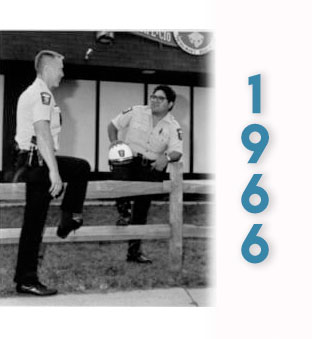
1966
INTERNATIONAL CONFERENCE OF POLICE ASSOCIATIONS
In 1966, the N.C.P.A. amended its by-laws to allow a number of local Canadian police associations to affiliate and became known as the International Conference of Police Associations (I.C.P.A.).
INTERNATIONAL UNION OF POLICE ASSOCIATIONS
It soon became apparent that police officers were in need of the support and services that only a strong union with a united labor front could provide. In response to this need, the International Union of Police Associations (I.U.P.A.) was created.
1979
NATIONAL RECOGNTION
On February 20, 1979, I.U.P.A. was granted a charter as the first union that gave the law enforcement community an independent voice within the organized labor movement. This partnership was created to enhance the working and personal lives of law enforcement professionals across the country. That partnership has not changed.
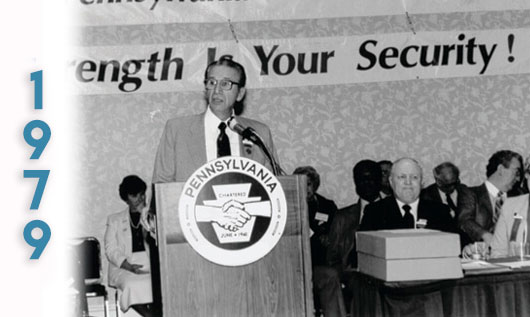
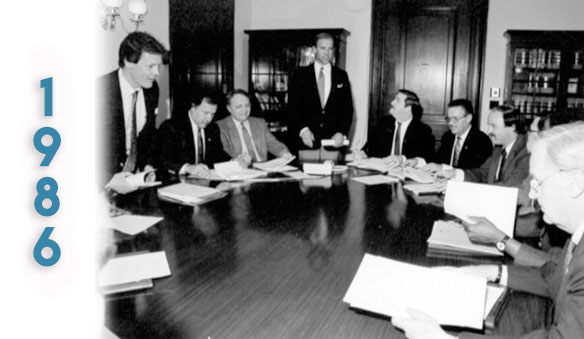
1986
PIVOTAL ROLE IN THE PASSAGE OF AMENDMENTS
The I.U.P.A. played a key role in the passage of amendments that made the Fair Labor Standards Act (FLSA) one of the most important labor laws ever passed applicable to law enforcement. In 1986, Congress passed a series of amendments to the FLSA, which forever changed American policing. No longer could law enforcement officers be required to work more than eight hours a day or 40 hours a week without compensation, and no longer did local unions and associations have to collectively bargain to ensure that overtime was paid at time and a half. I.U.P.A. General Counsel Mike Leibig appeared at the U.S. Supreme Court on three separate occasions and through his arguments demonstrated, clearly and unequivocally, the great value of an independent law enforcement union. We also fought alongside other unions in opposition to the rule changes to this act promulgated by the Department of Labor. This collaborative effort resulted in the passage of the Harkin Amendment through both houses of Congress.
1990
NATIONAL & INTERNATIONAL GROWTH
Due to I.U.P.A.’s international reputation as the leading advocate for Law Enforcement, I.U.P.A.’s membership has grown tremendously since 1990. Included in the expansion across the country of police and sheriff’s departments has been the affiliation of corrections officers as well law enforcement officers in Puerto Rico. and the U.S. Virgin Islands.
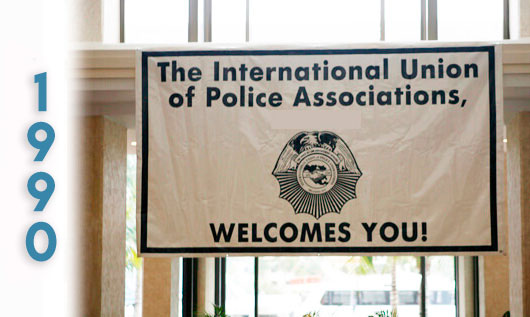
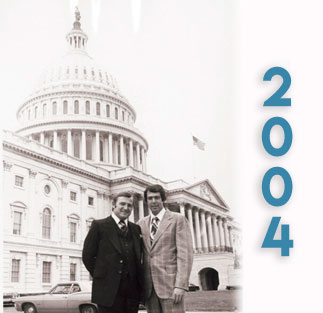
2004
PUBLIC SAFETY OVERTIME
The I.U.P.A. fought in opposition to the rule changes to the FLSA promulgated by the Department of Labor. This collaborative effort resulted in the passage of the Harkin Amendment through both houses of Congress which included the final regulations on exemptions from overtime. This protected overtime pay for Law Enforcement and other First Responders.
I.U.P.A. was also involved in improving the Law Enforcement Officer’s Safety Act, passed in 2004, by passing the Law Enforcement Officer’s Safety Improvement Act into law in 2010. The new law greatly improved the ability of retired officers to carry concealed personal firearms throughout the country.
2009
MAKING PROGRESS & LAUNCHING LAW ENFORCEMENT OFFICERS RELIEF FUND
In 2009, the I.U.P.A. founded LEORF, and in 2011, the I.U.P.A. launched the first annual LEORF Golf Classic to increase support for the Law Enforcement Officer’s Relief Fund (LEORF). LEORF was created by the I.U.P.A. to assist surviving spouses of officers with serious personal injuries on the job as well as line of duty deaths. Too often, benefits from insurance and other sources take too long to come forward. LEORF is there to attempt to provide immediate assistance to get officers and their families through the first trying weeks of these disasters.
2012
PROTECTING COLLECTIVE BARGAINING
2012 – The I.U.P.A. has been in the forefront as a national advocate and defender of officers. They were able to assist a successful campaign to repeal an Ohio law that would not only have gutted the collective bargaining process in that state, but would also have served as a dangerous precedent for other states to emulate and destroy unionism as we know it.
Whether protecting Law Enforcement Officer wages, benefits and work conditions, or assisting officers’ families in especially trying times, the I.U.P.A. always stands by their members.
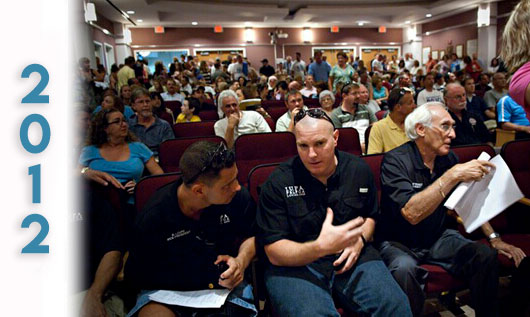
TODAY
The I.U.P.A. continues to advance the interests of law enforcement professionals through important legislation such as the Social Security Fairness Act, which has just been signed into law on January 5, 2025. The I.U.P.A. has also supported the Emerging Innovative Border Technologies Act, Public Service Freedom to Negotiate Act, Targeting Online Sales of Fentanyl Act, Expanding Health Care Options for First Responders Act, and many others!
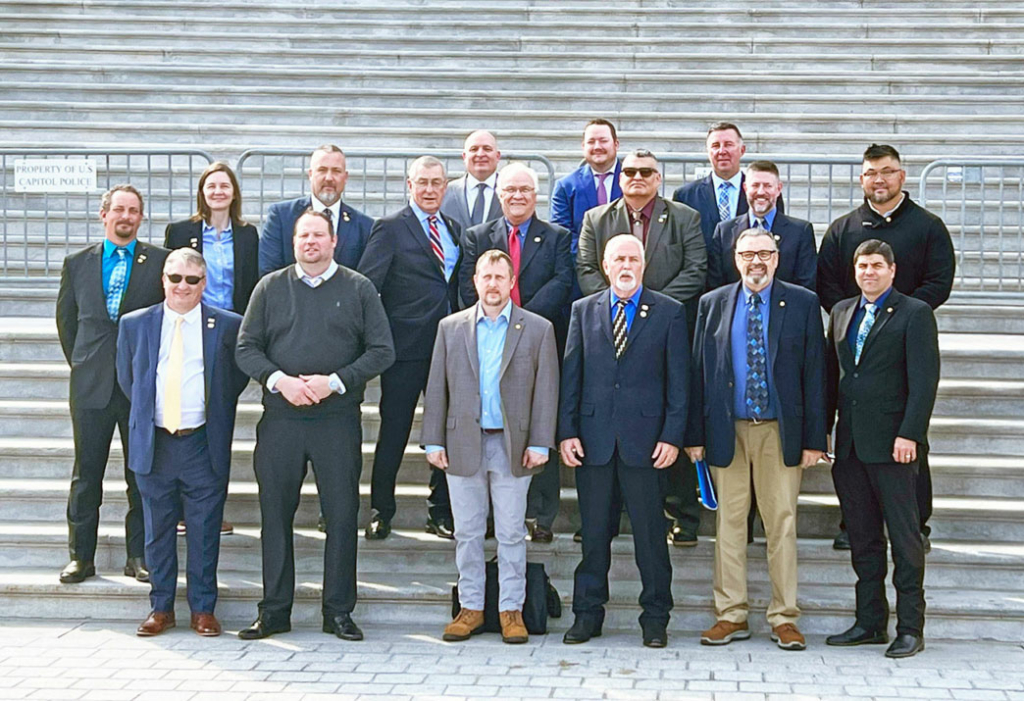

Get Social